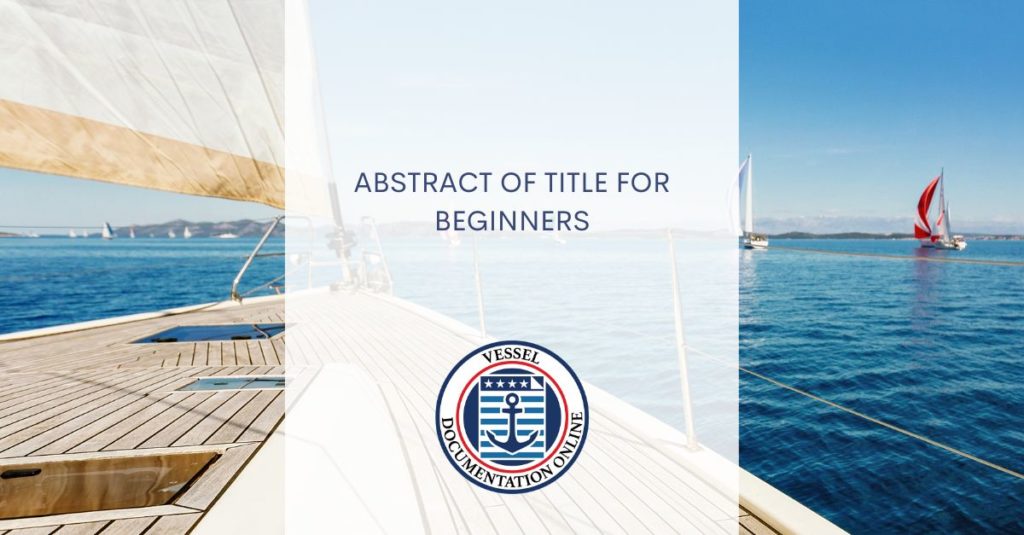The United States Coast Guard (USCG) manages federal vessel documentation through the National Vessel Documentation Center.
A Certificate of Documentation is a requirement for the operation of vessels of 5 net tons in certain trades, serves as evidence of vessel nationality, and permits a vessel to be subject to preferred mortgages under 46 U.S.C.
What is a Certificate of Documentation?
A Certificate of Documentation is a national/federal vessel title issued by the Coast Guard to establish ownership and nationality of a boat. It is a one-time process for application and renewal with a low annual fee.
A documented vessel identifies itself through a six digit number called the Documentation Number (also known as the Official Number). The Number remains with the vessel through all subsequent owners and is marked on the interior hull or main beam.
Commercial vessels over five net tons are required to have documentation if they will engage in commercial operations such as carrying passengers, hauling freight or commercial fishing. Vessel build and owner citizenship requirements are more stringent for commercial vessels.
A Certificate of Documentation shows the USCG has granted endorsements for a vessel to conduct a specific trade. Endorsements include fishery, coastwise, registry and recreation.
How do I apply for a Certificate of Documentation?
A Certificate of Documentation, or COD, is the top of the line for vessel titling and registration. It serves as both a certificate of nationality and an authorization to operate in specific trades, such as offshore oil and gas exploration.
It also serves as a means of securing preferred mortgages, which are legally protected by the US Coast Guard.
This certification is a good idea for any owner, but it becomes especially important for commercial operators.
The documentation process takes about one week if all parties are prepared to comply with the required documentation requirements.
Getting started involves filling out an Application for Document (CG-1258) and paying the appropriate fees.
The NVDC will be glad to assist with any questions you may have during the application process. Contact the center via email or phone at (855) 822-6111 for more information on how to get your boat certified and registered. You can order online or visit one of our locations in New York, Boston, San Francisco and Miami to discuss your unique needs in person.
What are the benefits of obtaining a Certificate of Documentation?
Vessels that measure over five net tons and are wholly owned by a United States citizen or citizens can apply for a Certificate of Documentation from the National vessel documentation Center (NVDC). This type of registration is used mainly for international purposes, as Customs officials universally recognize the COD as proof of ownership.
Some owners choose to document their vessels for several reasons, including tax savings and to make it easier to finance a boat. A documented vessel may also qualify for preferred mortgages from lending institutions.
In addition, some states designate a preferred tax status for documented vessels. Additionally, documented vessels may be eligible for a Preferred Ship Mortgage under 46 U.S. Code Chapter 313 which makes it easier to obtain a loan from a bank.
What are the requirements for obtaining a Certificate of Documentation?
Obtaining a Certificate of Documentation (COD) is not as complicated as it may seem. However, there are some requirements you should know before getting started.
Depending on your vessel’s intended usage, you may need different endorsements for your COD. The most common endorsements include fishery, coastwise, registry and recreation.
Boaters who own commercial vessels, such as those that carry passengers or haul freight, must also have their boats federally documented. In addition, their vessels must meet more stringent vessel build and owner citizenship standards.
Exemptions from the requirement to be documented include all Coastwise qualified, non-self-propelled vessels that operate in coastwise trade within a harbor, on rivers or lakes (except the Great Lakes) and the internal waters or canals of any state. The USCG has also set up additional exceptions for certain types of boats.